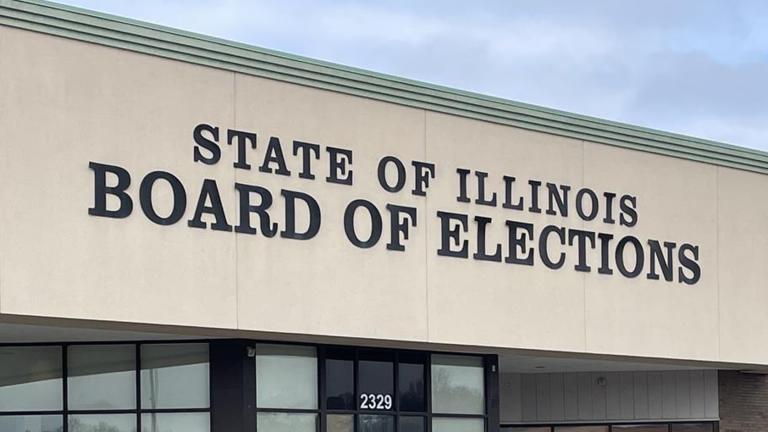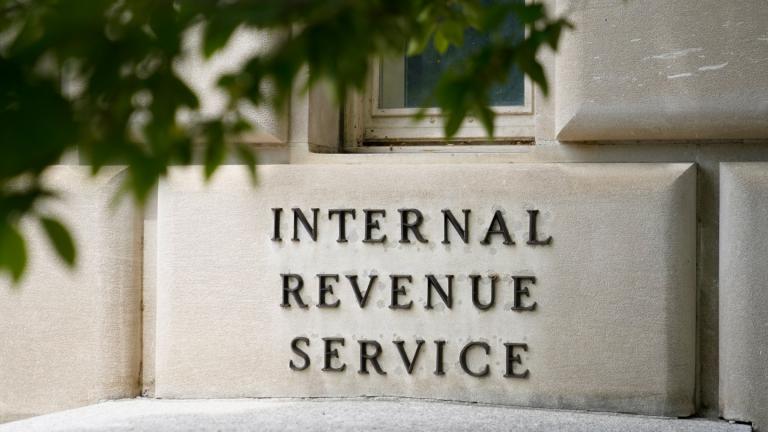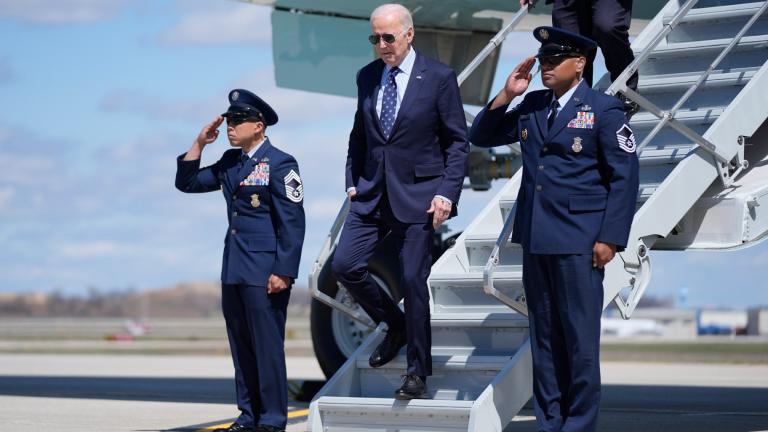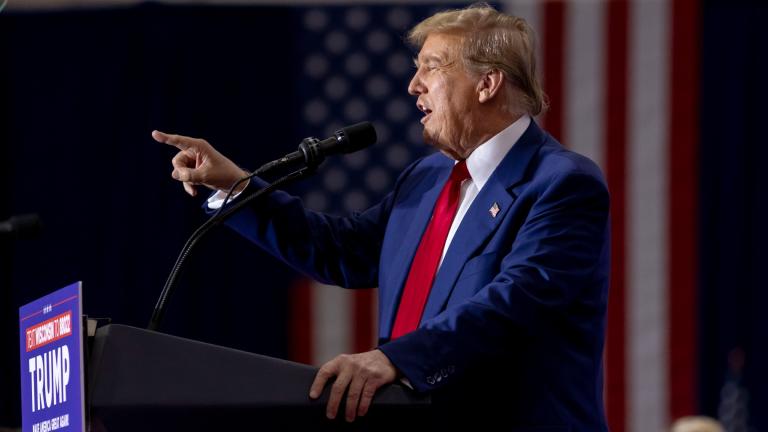Video: The WTTW News Spotlight Politics team on the day’s biggest stories. (Produced by Paul Caine)
Illinois voters will be able to choose former President Donald Trump or President Joe Biden in the March 19 primary, now that the Illinois State Board of Elections on Tuesday voted to reject attempts to knock each of the likely presidential nominees off the ballot.
The bipartisan board was unanimous in each of the rulings.
Within the five-day deadline, it will become clear whether the ballot matter is settled or whether it’ll become an issue for the courts. The Trump objectors are expected to appeal.
A group of Illinois voters said Trump should be disqualified from running for president because with his role in the Jan. 6, 2021, attack on the U.S. Capitol he violated the 14th Amendment’s insurrection clause.
But the board, following a recommendation from its attorney and a hearing officer who heard arguments from both sides on Friday, voted to dismiss the objection on the basis that the board lacks jurisdiction on a constitutional question.
“This Republican believes that there was an insurrection on Jan. 6,” GOP board member Catherine McCrory said. “There’s no doubt in my mind that he (Trump) manipulated, instigated, aided and abetted an insurrection. However, having said that, it is not my place to rule on that today.”
Matthew Piers, the attorney for the Trump objectors, had pushed back against that argument.
“There is no question under the law — no legitimate question — that this board not only has the authority to determine the objection based on the United States Constitution, but indeed you have the clear mandatory duty to do so,” Piers told election commissioners. “This burden came with you when signing up for this job. You may not have anticipated a case of this complexity, or of this degree of controversy, but that does not change your statutory and constitutional authority.”
Trump’s lawyer Scott Gessler, however, said it would have been inappropriate for the board to delve into the question of insurrection, “to determine whether or not there was an insurrection against the United States a year and a half ago, 800 or 1,000 miles away, by this particular board, when President Trump has never been afforded any opportunity for discovery or whatnot” given the short turnaround of the state’s proceedings.
Trump’s candidacy in Illinois could face another challenge, as a lawsuit over the board’s decision is expected.
Election board member Jack Vrett, a Republican, alluded to that Tuesday. Vrett said the work the board and its hearing officer and attorney did leading up to the vote makes “sure that there is a record sufficient for the parties to fully litigate this matter upwards on appeal as both have said they intend to do regardless of the outcome.”
“If we exceeded our authority and went beyond the documents in the nominating petition, and looked at the underlying conduct that was alleged in this case,” Vrett said, “what I believe we would see is the opening of a floodgate of litigation, not necessarily before this board, but before all the electoral boards that look to us for guidance on all the different election matters across this state. If we allow them, gave them authority to say, don’t just look at the papers but actually look at underlying allegations of misconduct, that would open a floodgate.”
Vrett said local election challenges are often the “fiercest.”
“I think that we would see if we exceeded our authority, is every possible school board candidate would seek to challenge the qualifications based on some sort of alleged criminal-linked conduct, and this board and the other electoral boards are certainly not constituted to do so,” Vrett said.
The U.S. Supreme Court on Feb. 8 is set to hear arguments as to whether Colorado can proceed in keeping Trump from running in its primary because the state’s high court ruled he engaged in insurrection.
Meanwhile, the Illinois State Board of Elections denied a bid to dump Biden from the Democratic primary ballot based on the contention that his petitions were inappropriately notarized, and a separate challenge in which objectors said Biden is ineligible because his actions on immigration and in Afghanistan are in violation of the 14th Amendment’s prohibition against aiding a national enemy.
The board voted in line with advice from its attorney, Marni Malowitz, who said the latter objection was “inadequate legally and factually” and that Biden’s foreign and immigration policies do not amount to his personally giving aid or comfort to an enemy.
Objector Timothy Conrad took issue with the board’s dismissal of the press releases and federal policies submitted as evidence of Biden’s wrongdoing, noting that the board had taken seriously the Trump objector’s inclusion of material from the special U.S. House committee that investigated the Jan. 6 riot.
Biden lawyer Keven Morphew said it would set a “dangerous” precedent if policy disagreements could be used to invalidate a politician’s candidacy, particularly given the state’s default for ballot access.
Follow Amanda Vinicky on Twitter: @AmandaVinicky








